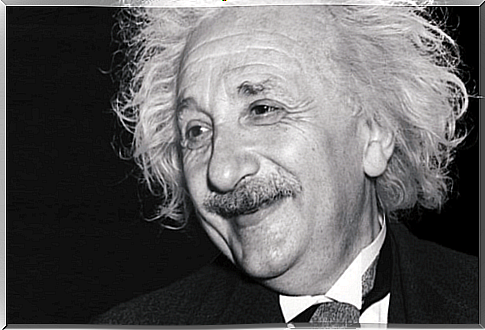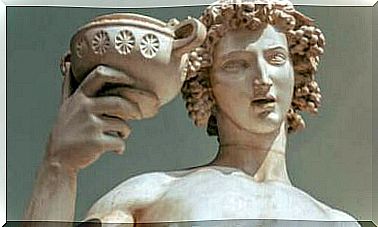Human Compassion: Einstein And His Thoughts

In 1950, Albert Einstein wrote a letter to a father who had just lost his little son to polio. The letter was full of depth and symbolism. A few decades later, the New York Times published the letter. Einstein never knew that his formula for survival and hope would be shared with all. In fact, this letter perfectly demonstrated his thoughts on human compassion.
One of the first things people notice about the letter is that the words contained a kind of philosophy. It could not be called religion, but it could be called a certain type of cosmic spirituality, along with a sense of transcendence.
Albert Einstein was the father of the theory of relativity. In this letter, he explained how we can alleviate the pain of loss if we understand that each of us is part of a much larger whole. Furthermore, what we believe remains is lost in us, in all parts of our being.
Five years after writing the letter, Albert Einstein died of an aneurysm. Somehow, and almost inadvertently, he contributed this unique gift in addition to the already enormous legacy of science, especially physics. The message began to circulate a lot with the rise of the Internet and social networks. Today, his message is more relevant than ever.

Human compassion: Einstein and his views
We often overlook the fact that Albert Einstein was more than just a brilliant scientist. He was a humanist, a violinist, and he was committed to social values. Furthermore, he was an admirable teacher and a faithful friend. In fact, his correspondence and documents from Princeton University reflect this fact.
Among this extensive selection of correspondence are letters from personalities such as Sigmund Freud, Bertrand Russell, Thomas Mann, George Bernard Shaw, Franklin D. Roosevelt and Albert Schweitzer. Furthermore, there are letters in the vast sea of correspondence that tell us that Albert Einstein was above all enormously supportive when others suffered.
An example can be seen in the letter he sent to the Queen of Belgium. Elizabeth of Bavaria and Albert Einstein were close friends and shared a passion for music. In 1934, her husband died in a climbing accident, a tragedy that destroyed her. However, the father of relativity somehow found the right words to comfort, encourage and empower her.
He did the same for Robert S. Marcus, a faithful and beloved friend who lost his son in 1950. In this letter, there is a specific concept that sets it apart from the other letters. For Einstein, human compassion was a mechanism for salvation and the way we give meaning to life.
A letter full of symbolism
It is difficult to give hope to those who have lost the most precious things to them. In these cases, it is useless to say “I’m sorry” or “They will always be in your heart “. What Albert Einstein was trying to do in his letter was to invite Mr. Marcus to look beyond his own pain and see that each of us is part of a much larger whole.
We will not suffer the anguish and pain of loss forever. We must transcend these states and feel human compassion, love and affection for all that surrounds us.

Human compassion: Einstein and his formula
Albert Einstein taught us that we do not exist separately. In fact, individualism has no meaning or purpose in a mutually dependent world, a universe where we are all part of a whole. Human compassion allows us to transcend, go beyond ourselves to reach everything that surrounds us.
True humanity goes beyond religions, ideologies, selfishness, fear and prejudice. However, you should remember that Albert Einstein was not the only person who gave this cosmic perspective to human compassion.
In fact, in one of his books, Carl Sagan reminds us that we should use compassion, intelligence, and technology. That way we can create a meaningful and respectful life with the planet, so that we can touch the stars. We must not forget the words of these two unforgettable personalities from astronomy and physics.









